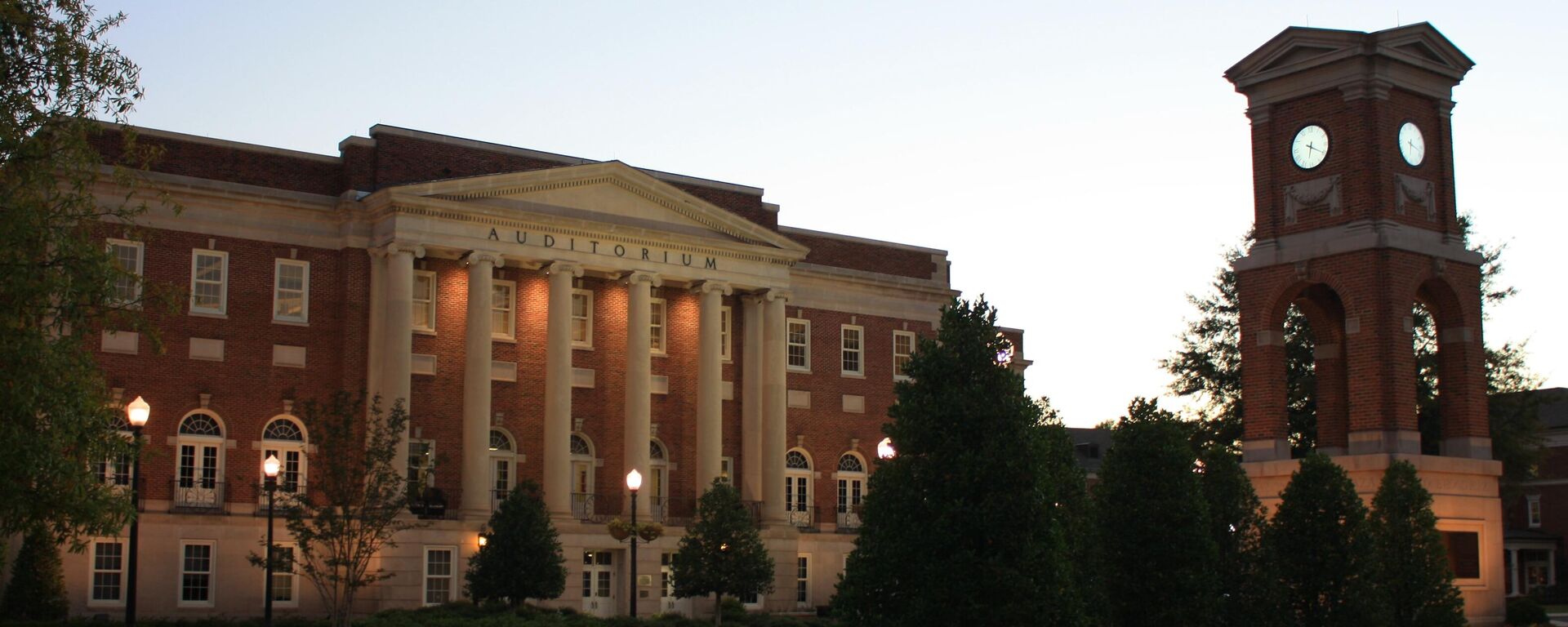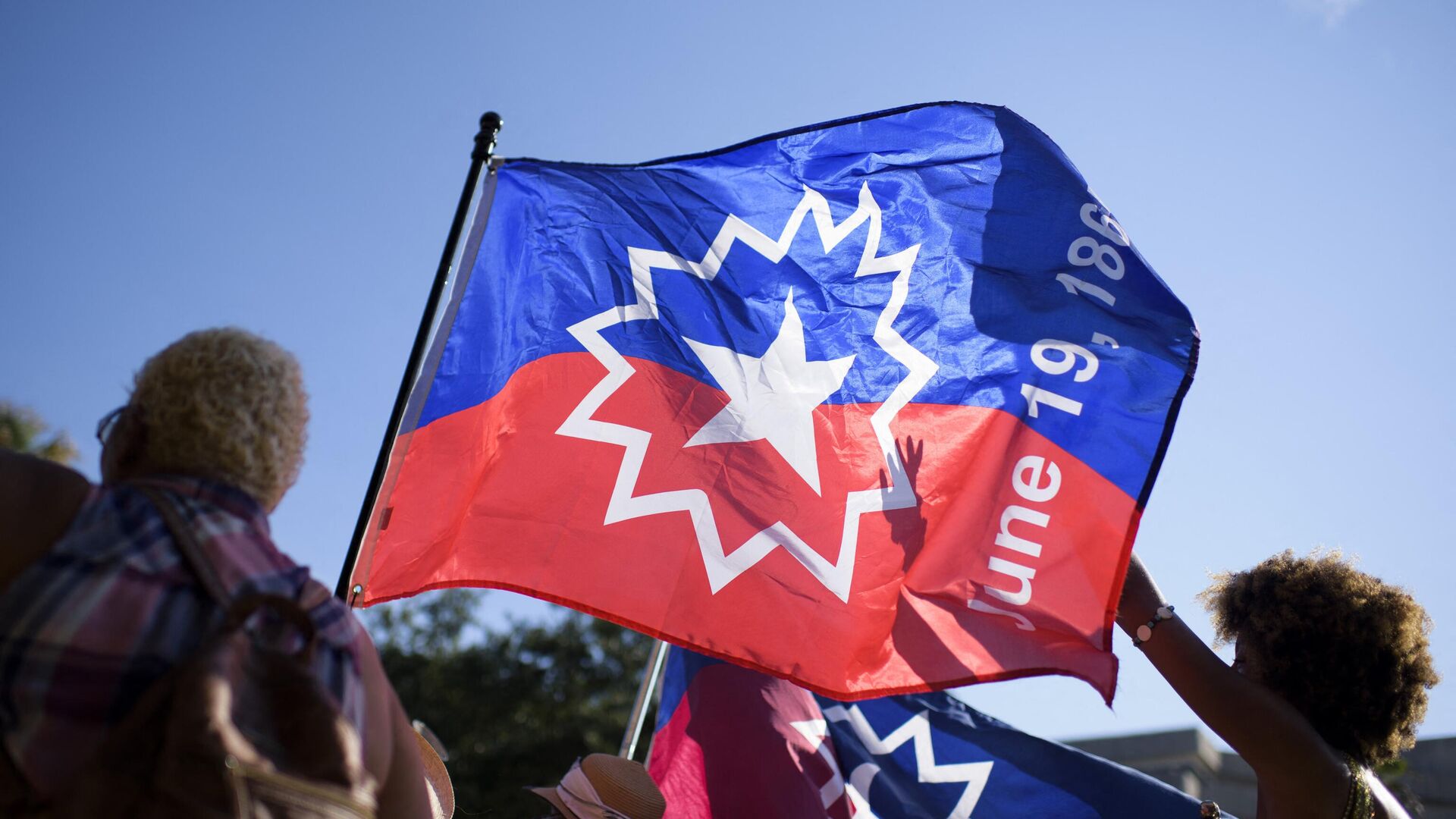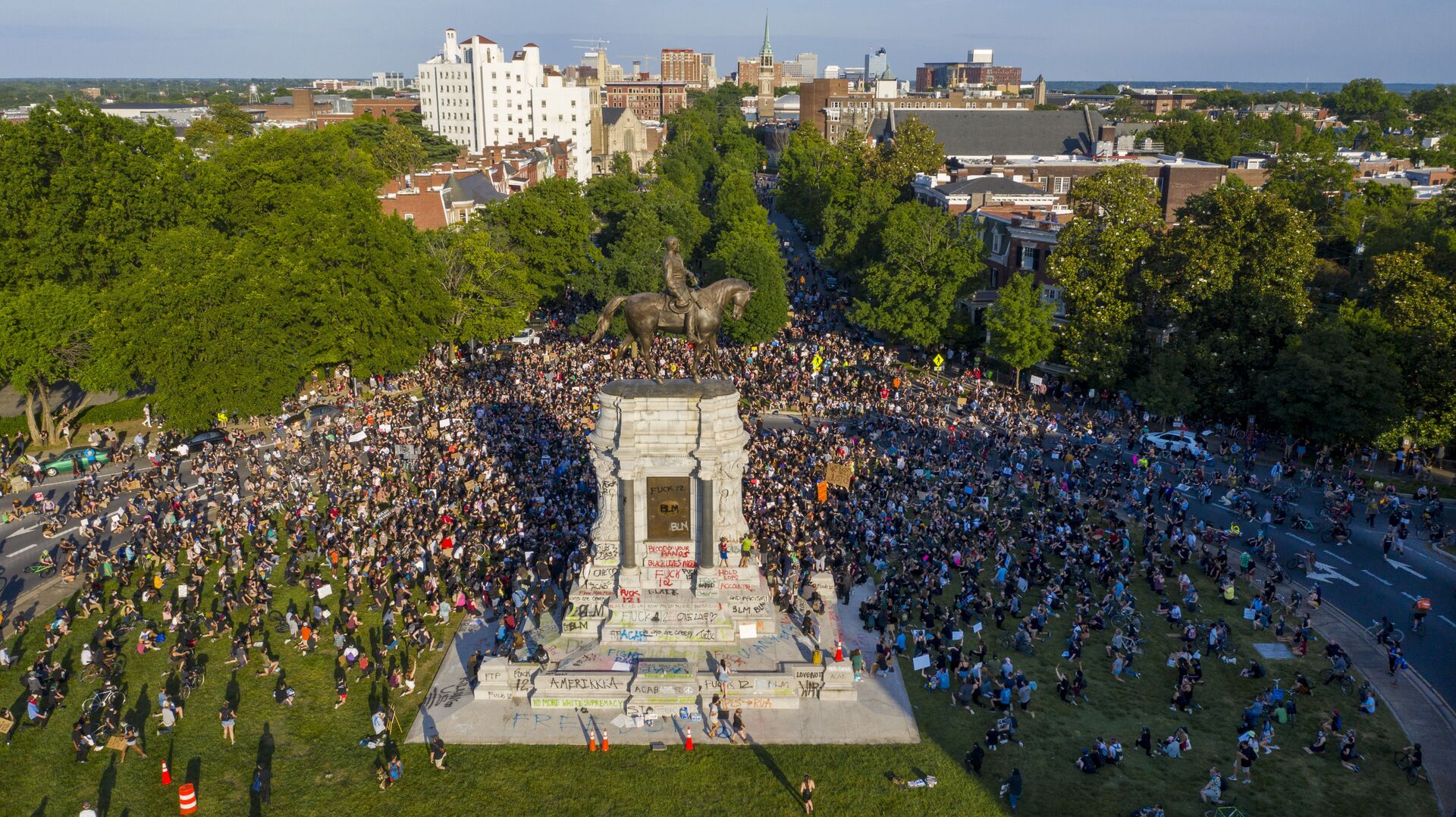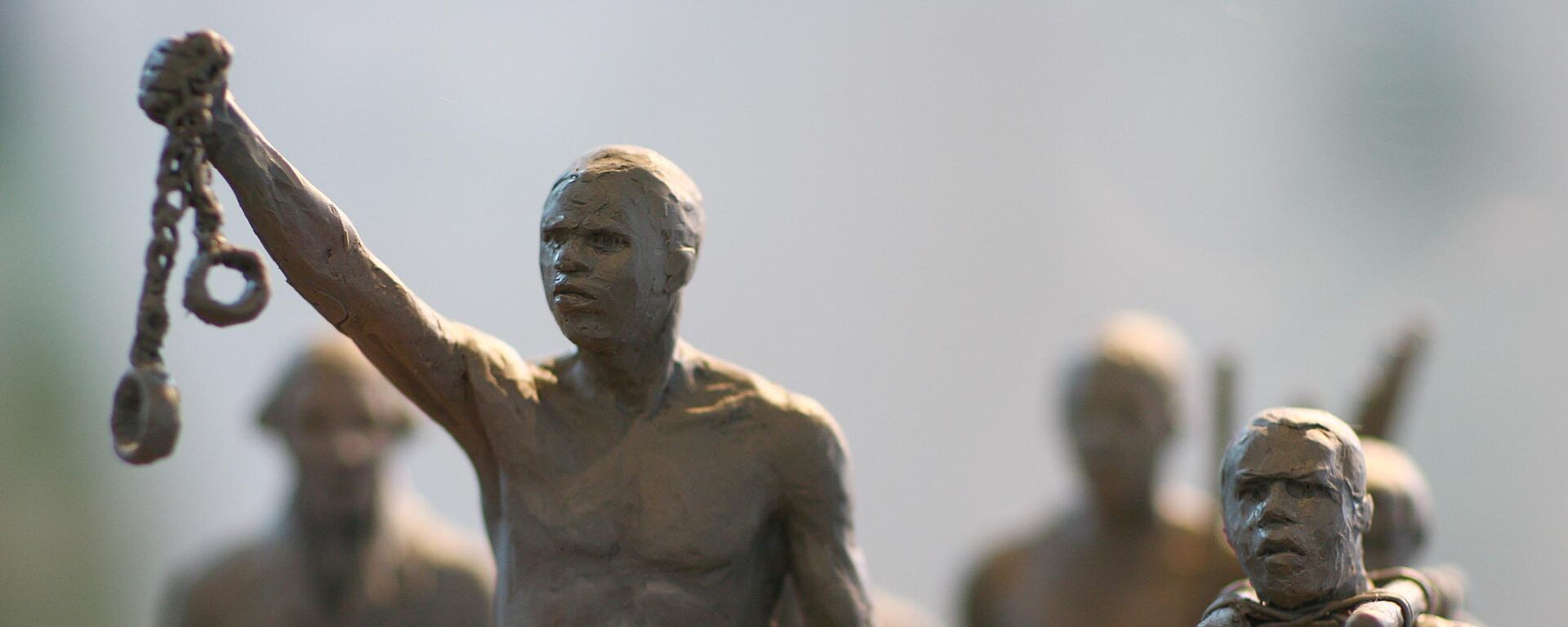https://sputnikglobe.com/20230619/what-is-juneteenth-americas-newest-federal-holiday-1111304515.html
What is Juneteenth, America’s Newest Federal Holiday?
What is Juneteenth, America’s Newest Federal Holiday?
Sputnik International
On Monday, millions of Americans are enjoying the country’s newest federal holiday, Juneteenth. Its celebration goes back more than a century and a half, to the days immediately following the American Civil War.
2023-06-19T18:48+0000
2023-06-19T18:48+0000
2023-06-19T18:48+0000
sputnik explains
ku klux klan
george floyd
us
american civil war
slavery
african americans
juneteenth
https://cdn1.img.sputnikglobe.com/img/07e7/06/13/1111304174_0:155:3068:1881_1920x0_80_0_0_944685dfeccd85fd548cc535cf31754d.jpg
The holiday’s name is a contraction of June Nineteenth, referring to the date in 1865 when the furthest reaches of the Confederacy were brought under Union control and their enslaved Black persons freed.The date has been commemorated by Black Americans ever since, with it morphing in more recent decades into a day for the celebration of Black culture. "In many ways, Juneteenth symbolically becomes a litmus test for the possibilities of this country,” he said.Slavery and WarThe origins of Juneteenth can ultimately be traced back to 1619, when the first enslaved Africans were brought to the English colonies that would one day form the United States. Especially in the South, where the climate was amenable to massive plantation farming of cash crops in high demand in Europe, such as tobacco, cotton, sugar, and indigo, American farmers increasingly resorted to using slaves imported from the African coast, swelling the enslaved population to nearly 40% in the southern states.As the North moved toward industrialization based on factories that employed low-paid workers, many of whom were recent immigrants from Europe, anti-slavery attitudes grew, and the issue of slavery became a stand-in for the country’s myriad socio-economic fault lines. By 1861, those issues had become so irreconcilable that when Abraham Lincoln, who pledged to halt the westward expansion of slavery, was elected president, 11 states where slavery was legal seceded from the country and declared a Confederate States of America that would safeguard their right to own Black people as human chattel.The Confederate government obviously ignored this order, but wherever Union armies reconquered territory, the Proclamation freed slaves. The Union Army began enlisting thousands of Black volunteers as soldiers, some of whom formed the army’s most elite troopers. The 54th Massachusetts Volunteer Infantry, for example, was the army’s most highly decorated unit - and sustained among the highest number of casualties.However, the Emancipation Proclamation didn’t abolish slavery entirely: the institution persisted in four border states - Maryland, Delaware, Kentucky, and Missouri - that had remained loyal to Washington but whose loyalty was seen as precarious. Only in December 1865, when the war was over and the 13th Amendment was passed, was slavery forever abolished everywhere in the United States.Spreading the WordOn April 9, 1865, Confederate Gen. Robert E. Lee surrendered to Union forces in western Virginia, several weeks after the Union armies had defeated the bulk of Lee’s army and recaptured the Confederate capital of Richmond. Elsewhere, other Union forces were forcing Confederate forces into retreat, and even as news of Lee’s surrender spread, some rebels refused to lay down their arms.In Texas, the Confederate Army of the Trans-Mississippi kept fighting until June 2, and even after, the Confederate institutions kept functioning until Union troops arrived and forced their end. The southern port of Galveston, on the US-Mexico border, was among the last places to receive word of the end of the war and of slavery’s abolition. An estimated 1,000 slaveowners lived in the area.US Maj. Gen. George Granger, assigned to occupy Galveston island and the surrounding area, issued General Order No. 3. on June 19:However, as noted, the final slaves to be freed were in Delaware and Kentucky, when the 13th Amendment was ratified into law on December 18, 1865 - nearly three years after the Emancipation Proclamation was issued.Day of JubileeThe following year, 1866, saw the first celebrations by Black freedmen of what was called “Jubilee Day.” From the beginning, the day was highly political, with Black organizers using the day to help freedmen get instructions on how to exercise their political and social rights won with the abolition of involuntary servitude. The Freedmen’s Bureau, a key Reconstruction institution dedicated to this task, used the day for fundraising and outreach.After the war was over, Union forces occupied the defeated South for several years, overseeing Reconstruction: a process of integration, education, and re-education designed to erase the legacy of slavery and elevate the Black freedmen to equality with their white countrymen. The nation’s first public schools were opened to educate the 3.5 million freed slaves, who it had been illegal to teach to read or write, and numerous other public institutions serving their needs came as well.The main goal of Reconstruction was to break the political back of the white planter class whose rivalry with the northern capitalists, who backed the triumphant Union Army, had led to the outbreak of hostilities. White politicians and planters who had backed the rebel government had their lands confiscated, and those who wished to return were required to take public oaths of loyalty to the federal government.By the 1890s, white supremacist governments had returned to power in every southern state, ushering in a new period of racial apartheid and Black political disenfranchisement colloquially called “Jim Crow” that persisted until the Civil Rights Movement of the 1960s.As a result, celebration of Juneteenth was greatly suppressed, as was essentially all anti-Confederate sentiment in the South. As Black families began to migrate out of the South fleeing Jim Crow and seeking better employment, they carried the Day of Jubilee with them, spreading it into the country’s north and west.Modern CelebrationsThe Civil Rights Movement saw an accompanying revival of suppressed Black political and social expression as Black Americans affirmed their right to equality with white Americans, and that included a revival of Juneteenth celebrations.A major turning point came during the 1968 Poor People’s Campaign, an anti-poverty movement kick-started by civil rights leader Dr. Martin Luther King, Jr. in the months before his April 1968 assassination. Rev. Ralph Abernathy of the Southern Christian Leadership Conference (SCLC) made June 19 the "Solidarity Day of the Poor People’s Campaign" and a grand celebration was held in Washington, DC, attended by as many as 100,000 people.The first attempt to make Juneteenth a federal holiday came in 1996, and the following year saw activist Ben Haith create the Juneteenth flag now flown on federal buildings for the holiday.By 2019, 47 states and the District of Columbia had recognized Juneteenth, although only Texas had adopted the holiday as a paid holiday for state employees. All that changed after George Floyd, a 46-year-old Black man, died on May 25, 2020 after Minneapolis police officer Derek Chauvin knelt on his neck for nine minutes during an arrest. In the days and weeks that followed, tens of millions of Americans poured into the streets to demand accountability for Floyd’s murder and an end to police violence,.In some states, the move to make Juneteenth a holiday came as the protests were still underway. However, on June 17, 2021, US President Joe Biden signed a bill making Juneteenth the 11th federal holiday - the first since Martin Luther King Jr. Day was designated a federal holiday in 1983.
https://sputnikglobe.com/20220621/increasing-right-wing-violence-is-cause-for-action-and-organizing-1096501775.html
https://sputnikglobe.com/20230218/fbi-secretly-snatched-trove-of-civil-war-era-gold-treasure-hunter-claims-1107582363.html
https://sputnikglobe.com/20220701/texas-board-rejects-bid-to-call-slavery-involuntary-relocation-in-elementary-school-lessons-1096850031.html
https://sputnikglobe.com/20220213/university-of-alabama-to-cease-honoring-kkk-leader-rename-hall-after-schools-first-black-student-1093003285.html
Sputnik International
feedback@sputniknews.com
+74956456601
MIA „Rossiya Segodnya“
2023
News
en_EN
Sputnik International
feedback@sputniknews.com
+74956456601
MIA „Rossiya Segodnya“
Sputnik International
feedback@sputniknews.com
+74956456601
MIA „Rossiya Segodnya“
juneteenth; galveston; slavery; civil war; black
juneteenth; galveston; slavery; civil war; black
What is Juneteenth, America’s Newest Federal Holiday?
Longread
On Monday, millions of Americans are enjoying a day off from work to commemorate the country’s newest federal holiday, Juneteenth. While it only legally acquired that status two years ago, its celebration goes back more than a century and a half, to the days immediately following the American Civil War.
The holiday’s name is a contraction of
June Nineteenth, referring to the date in 1865 when the furthest reaches of the Confederacy were brought under Union control and their enslaved Black persons freed.
The date has been commemorated by Black Americans ever since, with it morphing in more recent decades into a day for the
celebration of Black culture.
"Juneteenth celebrations are a chance for this country, for the United States to rethink not only its origins, but the relationship of everybody who lives in this country to each other," said Greg Carr, associate professor of Africana Studies at Howard University, a historic Black university founded in Washington, DC, just two years after the events of the holiday.
"In many ways, Juneteenth symbolically becomes a litmus test for the possibilities of this country,” he said.
Leslie Wilson, professor of history at Montclair State University in New Jersey, also told US media that “We are not celebrating the history of Juneteenth. We are celebrating the symbolism of Juneteenth. The symbolism of Juneteenth is the transition from slavery to freedom."
The origins of Juneteenth can ultimately be traced back to 1619, when the first enslaved Africans were brought to the English colonies that would one day form the United States. Especially in the South, where the climate was amenable to massive plantation farming of cash crops in high demand in Europe, such as tobacco, cotton, sugar, and indigo, American farmers increasingly resorted to using slaves imported from the African coast, swelling the enslaved population to nearly 40% in the southern states.
As the North moved toward industrialization based on factories that employed low-paid workers, many of whom were recent immigrants from Europe, anti-slavery attitudes grew, and the issue of slavery became a stand-in for the country’s myriad socio-economic fault lines. By 1861, those issues had become so irreconcilable that when Abraham Lincoln, who pledged to halt the westward expansion of slavery, was elected president, 11 states where slavery was legal seceded from the country and declared a Confederate States of America that would safeguard their right to own Black people as human chattel.
After the war began in April of that year, Union soldiers began seizing Confederate property, including their slaves, as contraband of war in an effort to undermine the Confederacy’s ability to sustain itself. As word spread, tens of thousands of Black slaves fled from their plantations toward Union lines, and by January 1, 1863, Lincoln issued an Emancipation Proclamation declaring that all slaves in states rebelling against the federal government were freed.
The Confederate government obviously ignored this order, but wherever Union armies reconquered territory, the Proclamation freed slaves. The Union Army began enlisting thousands of Black volunteers as soldiers, some of whom formed the army’s most elite troopers. The 54th Massachusetts Volunteer Infantry, for example, was the army’s most highly decorated unit - and sustained among the highest number of casualties.

18 February 2023, 18:40 GMT
However, the Emancipation Proclamation didn’t abolish slavery entirely: the institution persisted in four border states - Maryland, Delaware, Kentucky, and Missouri - that had remained loyal to Washington but whose loyalty was seen as precarious. Only in December 1865, when the war was over and the
13th Amendment was passed, was
slavery forever abolished everywhere in the United States.
On April 9, 1865, Confederate Gen. Robert E. Lee surrendered to Union forces in western Virginia, several weeks after the Union armies had defeated the bulk of Lee’s army and recaptured the Confederate capital of Richmond. Elsewhere, other Union forces were forcing Confederate forces into retreat, and even as news of Lee’s surrender spread, some rebels refused to lay down their arms.
In Texas, the Confederate Army of the Trans-Mississippi kept fighting until June 2, and even after, the Confederate institutions kept functioning until Union troops arrived and forced their end. The southern port of Galveston, on the US-Mexico border, was among the last places to receive word of the end of the war and of slavery’s abolition. An estimated 1,000 slaveowners lived in the area.
US Maj. Gen. George Granger, assigned to occupy Galveston island and the surrounding area, issued General Order No. 3. on June 19:
“The people of Texas are informed that, in accordance with a proclamation from the Executive of the United States, all slaves are free. This involves an absolute equality of personal rights and rights of property between former masters and slaves, and the connection heretofore existing between them becomes that between employer and hired labor. The freedmen are advised to remain quietly at their present homes and work for wages. They are informed that they will not be allowed to collect at military posts and that they will not be supported in idleness either there or elsewhere.”
However, as noted, the final slaves to be freed were in Delaware and Kentucky, when the 13th Amendment was ratified into law on December 18, 1865 - nearly three years after the Emancipation Proclamation was issued.
The following year, 1866, saw the first celebrations by Black freedmen of what was called “Jubilee Day.” From the beginning, the day was highly political, with Black organizers using the day to help freedmen get instructions on how to exercise their political and social rights won with the abolition of involuntary servitude. The Freedmen’s Bureau, a key Reconstruction institution dedicated to this task, used the day for fundraising and outreach.
After the war was over, Union forces occupied the defeated South for several years, overseeing Reconstruction: a process of integration, education, and re-education designed to erase the legacy of slavery and elevate the Black freedmen to equality with their white countrymen. The nation’s first public schools were opened to educate the 3.5 million freed slaves, who it had been illegal to teach to read or write, and numerous other public institutions serving their needs came as well.
The main goal of Reconstruction was to break the political back of the white planter class whose rivalry with the northern capitalists, who backed the triumphant Union Army, had led to the outbreak of hostilities. White politicians and planters who had backed the rebel government had their lands confiscated, and those who wished to return were required to take public oaths of loyalty to the federal government.
However, Confederate sympathizers and white supremacist paramilitary groups regularly attacked the Black freedmen and the institutions that served them, with the most notorious group being the Ku Klux Klan. The US government declared the KKK a terrorist organization in 1871 and used the army to crush them, but in the end, the white supremacists won, and a shrewdly hatched political deal in 1877 saw Union forces end their suppression and withdraw from the South.

13 February 2022, 22:55 GMT
By the 1890s, white supremacist governments had returned to power in every southern state, ushering in a new period of racial apartheid and Black political disenfranchisement colloquially called “Jim Crow” that persisted until the Civil Rights Movement of the 1960s.
As a result, celebration of Juneteenth was greatly suppressed, as was essentially all anti-Confederate sentiment in the South. As Black families began to migrate out of the South fleeing Jim Crow and seeking better employment, they carried the Day of Jubilee with them, spreading it into the country’s north and west.
The Civil Rights Movement saw an accompanying revival of suppressed Black political and social expression as Black Americans affirmed their right to equality with white Americans, and that included a revival of Juneteenth celebrations.
A major turning point came during the 1968 Poor People’s Campaign, an anti-poverty movement kick-started by civil rights leader Dr. Martin Luther King, Jr. in the months before his April 1968 assassination. Rev. Ralph Abernathy of the Southern Christian Leadership Conference (SCLC) made June 19 the "Solidarity Day of the Poor People’s Campaign" and a grand celebration was held in Washington, DC, attended by as many as 100,000 people.
After, the revival spread across the country, with cities with large Black populations like Washington, DC, and Milwaukee, Wisconsin, leading the charge. In 1974, Juneteenth celebrations returned to southern Texas, and the state’s legislature made it a state holiday in 1979.
The first attempt to make Juneteenth a federal holiday came in 1996, and the following year saw activist Ben Haith create the Juneteenth flag now flown on federal buildings for the holiday.
By 2019, 47 states and the District of Columbia had recognized Juneteenth, although only Texas had adopted the holiday as a paid holiday for state employees. All that changed after George Floyd, a 46-year-old Black man, died on May 25, 2020 after Minneapolis police officer Derek Chauvin knelt on his neck for nine minutes during an arrest. In the days and weeks that followed, tens of millions of Americans poured into the streets to demand accountability for Floyd’s murder and an end to police violence,.
In some states, the move to make Juneteenth a holiday came as the protests were still underway. However, on June 17, 2021, US President Joe Biden signed a bill making Juneteenth the 11th federal holiday - the first since Martin Luther King Jr. Day was designated a federal holiday in 1983.






